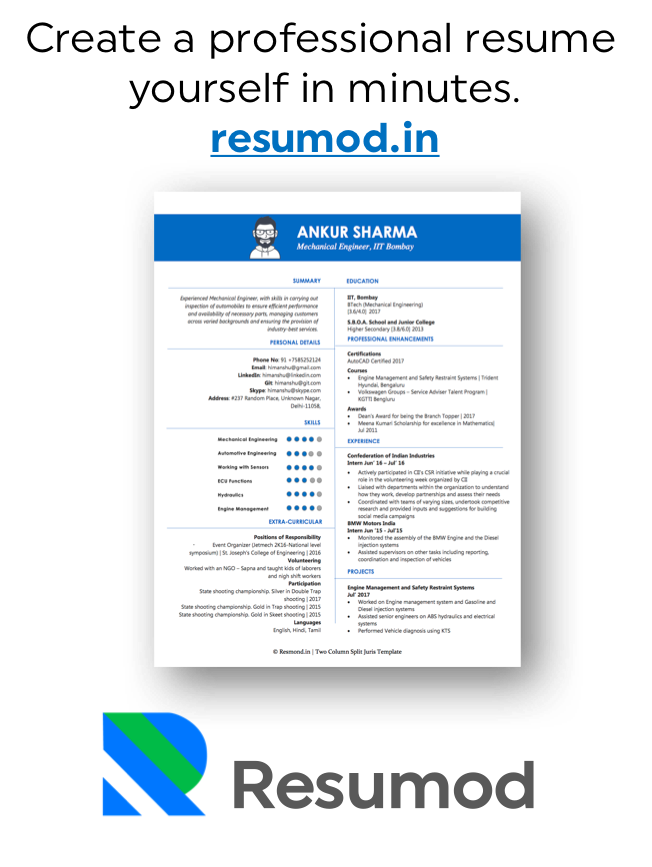Emotional Intelligence (EI) can become a very important characteristic to show to your interviewer that you have the proper ability and mental skills for a job. Not only does EI convey your ability to feel and recognise your emotions, but it also helps you understand, manage, and channelise them. If you are emotionally intelligent, you can manage your own emotions as well as the emotions of others in your team.
So how can you show emotional intelligence? Here are some ways.
1. Listen
Listening is the most important part of any conversations. If you listen well, you understand what is being said, engage with the questioner, see things from a different perspective, and then respond with intelligence. This is probably the easiest way to gain extra EI points. If you can listen well, it would say a lot about you.
Another way of showing that you are listening properly is to ask questions. Counter questions too. If you the tiniest bit attentive, you will always be able to understand your interviewer and ask a question in return. This shows you are thinking while listening and possess an active mind.
2. Show that you are a Team Player
No man is a lone achiever. If you have achieved success, won awards, you can always show how your entire team including your peers and seniors helped you achieve it. This shows your sense of belonging, your orientation towards working as a unit and your attribute of sharing credit.
3. Avoid an Emotional Blowout
You might have had a bad experience in your last job; a bad manager, a terrible client, an unjust review, an idiot coworker, etc, etc. It does not mean you will vent that out in your present interview. A great sign of an Emotionally Intelligent person is the ability to take ownership for the events that occurred. Do not show anger when your previous manager’s name comes up. It’s ok! Handle the experience maturely and remember what has happened in the past cannot be changed. Show your interviewer how you learnt from a bad experience and how that has changed you as a person. Being positive will have a great bearing on how you are perceived as an individual and a professional.
4. Be Expressive
An interview is between people; human beings. And human beings express emotions. It is always good to smile or show excitement. When talking about something that got you great results, it is always great to show enthusiasm. But ensure your emotions are not forced. It is never a good idea to come across as someone who is not their true self. At the same time, try to be positive. As I said in point #3, avoid a stage where your anger or negative emotion becomes your downfall.
5. Positive Body Language
Non-verbal cues such as body language and expressions are important when you are appearing for an interview. If you sound enthusiastic during a telephonic interview but your handshake is flaccid, it’s a red flag for the interviewer. Similarly, if you are too eager on emails but arrive late for the face to face meeting, again a red flag. You need to make sure your personality matches your emotion and aligns with your expectations. Every ounce of your body should drip of positivity and excitement. This would go a long way in enforcing your candidacy in the mind of your prospective employer.
6. Be Real. Be You!
The most important thing that you can do for yourself right now, is to identify yourself and accept who you are. You cannot fake being someone else for long. This act of self-awareness is an important part of becoming emotionally intelligent.
When you accept yourself, you know what you can do and what you cannot do. You become honest. And this honestly translates to all aspects of your professional dealings, including your interviews. What it does is it gives you a new path to take when you don’t know the right answer to a question. A path which is honest. It not only tells your interviewer what you will do when faced with a roadblock but also tells a lot about your character.
The first step in becoming an Emotionally Intelligent being is to identify and accept yourself. Be true to yourself and you will realise being positive is not that difficult after all. All the best! 🙂




Thanks for sharing this excellent blog.
Nice Article . Thanks For Shearing This Information.
Nice Article. Thanks For Shearing This Information.